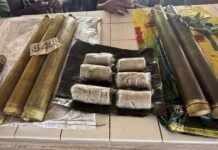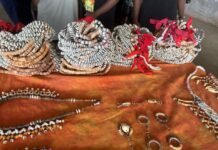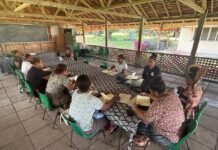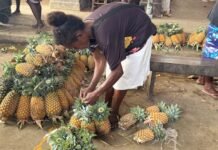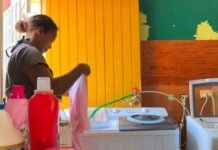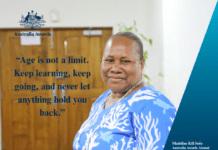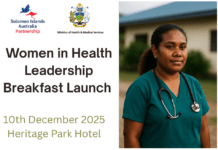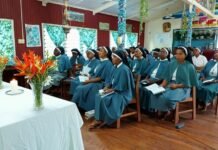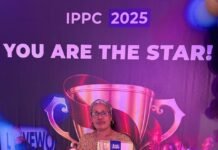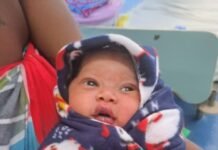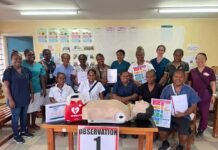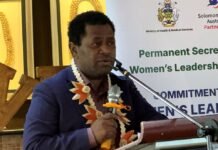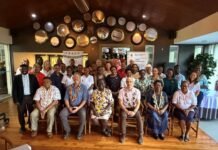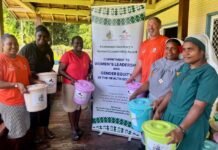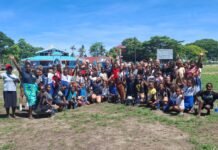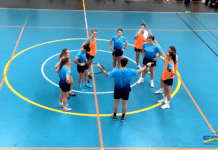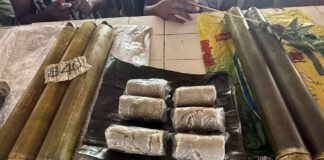BY MIKE TUA
ALICE Bouka is pleased to be an HIV Community Advocator of the Ministry of Health Medical Services, HIV Prevention Unit.
She is a former untrained primary school teacher, who has over the years become a leading Human Immunodeficiency Virus (HIV) HIV community advocator in the Solomon Islands.
Although she is HIV positive, she sacrifices a lot of her time raising awareness in communities in the country.
As a woman HIV advocator, she travels to other provinces here to promote her status as someone living with HIV, education on HIV stigma and discrimination, HIV prevention methods, and how to make the right choices.
Solomon Women’s Newspaper, Reporter Mike Tua interviews Bouka on her shared experience as a woman living with HIV in the country.
When Alice waited for the results of a blood test in 2005, she already knew what to expect. She was 24-year-old when she digested the news he had contracted the Human Immunodeficiency Virus – HIV.
She contracted the infection from her partner she met when she was 20 years of age in 2002.
“In 2005, my partner was tested positive for HIV and he told me to test for HIV, by then, I am absolutely sure already that I will be tested positive for HIV,” she recalls.
Just two years after she was diagnosed with HIV, in 2007, she took up employment at the Ministry of Health HIV Unit. From there, she decided to actively disclose her status and tell her story publicly as a Person Living with HIV (PLHIV) in the country.
“I decided to reveal my HIV status because I knew I had a child who was born HIV negative and I soon noticed that the environment in our society is not safe because of the negative attitude and picture portrayed in the mentality of the people in our society.
“I wanted to show the face of HIV in our society and more especially to change the attitude of our people,” she added.
In the Solomon Islands, stigma and discrimination surrounding HIV/ AIDS is quite evident in our society and still have not entirely gone away, even after all these years since HIV cases were diagnosed in the country in 1994.
Alice who is originally from Guadalcanal said stigma and discrimination still exist in our society today because of the negative culture most people in our society possessed over the years.
“We have already been aware that HIV does exist in our society, if we continue to stigmatize and discriminate against those people then it will avoid them from coming out for voluntary HIV tests and more HIV infections will spread in the country.
“Therefore, our communities must need to change their perception and negative approach towards people positive with HIV. The attitude and culture of our society still remain the same and if they can change their negative attitude and mindset then there will be no stigma and discrimination,” she said.
A woman living with HIV can be isolating as many women might not want to tell anyone about their status.
Being pregnant mother whist being diagnosed with HIV, Bouko encouraged HIV-positive women in the country to feel safe and be part of the society by exercising their rights freely like every normal Solomon Islander.
“It is possible for HIV-positive women who want to start families of their own because women have their own rights and can still enjoy sexual activity as long as they can disclose their HIV status to someone they approach or someone they have a strong relationship with.
“They have every right compared to other normal people in our society. They still can have a baby with a negative HIV status,” she said.
The really great news so far in the Solomon Islands is that with good prenatal care and access to treatment for HIV, if warranted, the likelihood that an HIV-positive woman will have a baby who will ultimately be HIV-negative can be possible; therefore, HIV should never eliminate the possibility from parenting or anything else.
However, despite this progress made over the years for people living with HIV in the country, the HIV Community Advocator said it is very challenging for her to convince other HIV-positive women to get involved in raising the level of HIV awareness here.
“Because of the lack of funds available here, we have experienced a lot of challenges in funding such initiatives such setback is not attractive to convince women living with HIV out there to disclose their status publicly.
“However, I will try my best to talk with one or two women living with HIV status but it’s up to them if they are willing enough to engage in supporting HIV awareness in the country.
“I believe if we have good financial support then it will allow others out there to come out to help and facilitate with awareness to help prevent the spread of HIV in the country,” Bouko said.
When asked which areas surrounding HIV and women do you think need to be explored a bit more in the field of research? She believed the country needs to understand more about how we can manage the impact of HIV in the country.
“We need to be doing a lot of research on the usage of condoms. Why STI and HIV still continue to increase despite condoms being freely available in the country and also more research should focus on why stigma and discrimination of women and people living with HIV exist in our society.”
Alice over the years has been vocal through the media, as a woman she has shared her own reason or reasons based on her experience as an HIV-positive mother. Her powerful voice has really demonstrated a powerful voice and face for people living with HIV in the country.
She said the stigma surrounding HIV/AIDS still exists and it’s very important to reduce this stigma.
“The culture of stigma had existed for centuries, for example in the bible, people with leprosy have been stigmatized and it’s obvious that people with HIV status are also more vulnerable to the same practice in our society today.
“The society should put in their shoes, how it feels to be a person living with HIV. I believed by doing so, people should change their attitudes and negative practices of discriminating against people with HIV and by establishing good communication with them.
“I think if we reduce the stigma, more and more people will take steps to protect themselves from HIV. Right now, I think people believe getting infected with HIV could never happen to them, but HIV affects people of all ages and races. By reducing the stigma, we accept that truth and take steps to protect our health.
“I also think reducing the stigma will encourage more people to get tested so they know their status. If they are negative, they need to do everything they can to remain that way. If they are positive, they should not be afraid to get treatment immediately.”
She believes one way to share knowledge and take action in support of HIV is to integrate information into the curriculum of primary and secondary schools in the country.
“It’s important for the society to be updated with new information regarding HIV so that they can pass it to their children at home and in schools.
“Because the more you advocate for them while they’re still in their primary level of education, it will remain in their memory for a lifetime and they will also prolong their sexual desire to have sex at an early age.
“The more HIV awareness is carried out in schools or integrated as a syllabus, it will help to avoid early sexual activities and children will be knowledgeable to know about the risks and how to prevent such negative action from occurring in their near future.”






